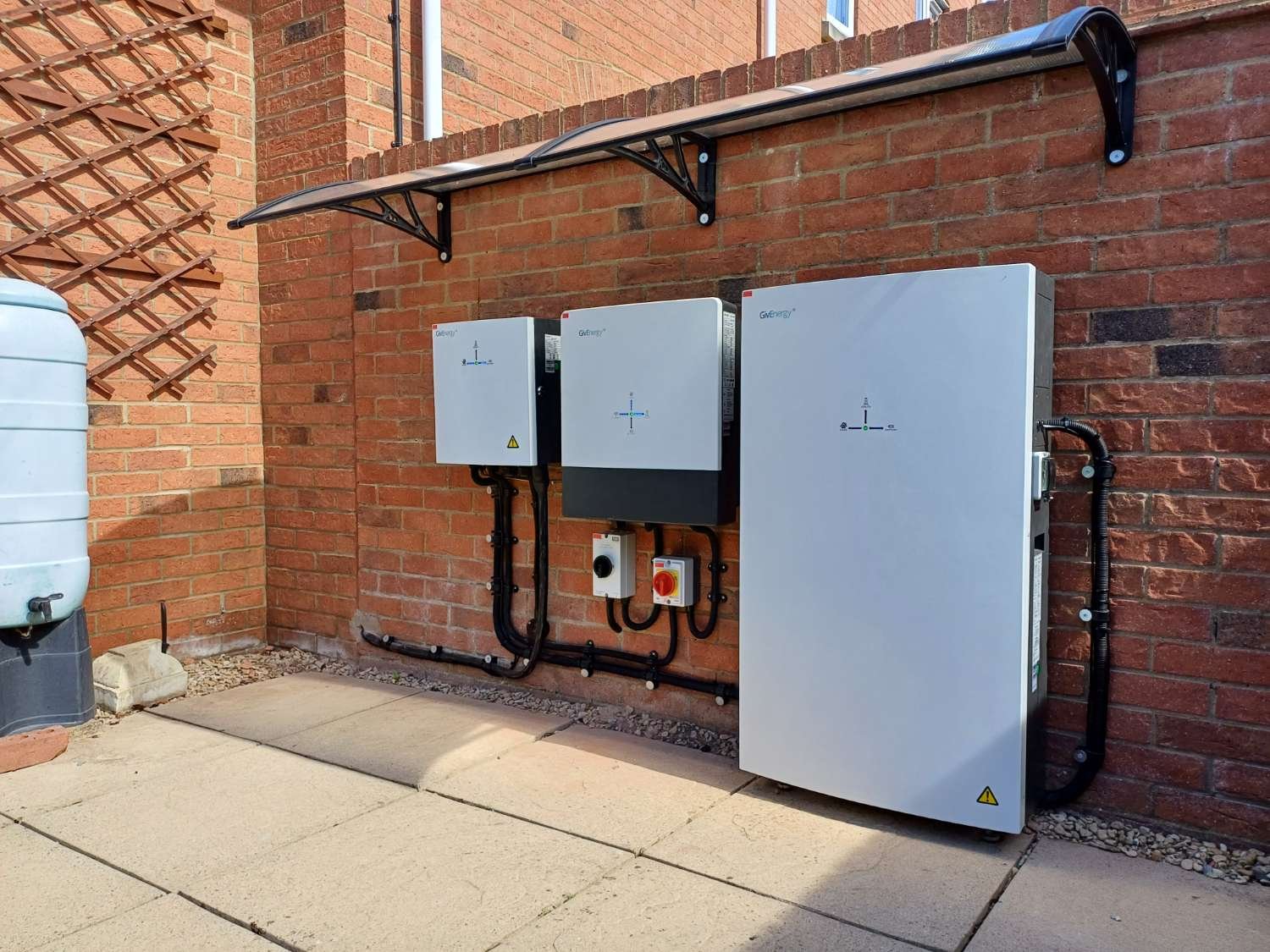
Solar PV Panels & Battery Storage
-
Solar PV systems use sunlight to generate electricity through panels that convert daylight into direct current (DC).
This DC is then converted to alternating current (AC) by an inverter, which powers household appliances. Excess energy can stored in batteries or be exported to the national grid.
-
Solar battery storage systems store electricity generated by solar panels during the day for use at night or during peak times.
These batteries, typically made of lithium-ion or lead-acid, enhance energy efficiency by allowing homeowners to use stored power instead of grid electricity.
You can have a battery installed without solar panels too! If you are on a tariff that is cheaper at certain points of the day, you can charge the batteries when it’s cheapest and use throughout the day or night.
-
According to E.ON, a 9.6 kWh solar battery storage system (with 12 x 315W panels) might allow you to utilise up to 30% more of the energy generated by your solar panels and save up to £560 on your annual energy bills. Prices as of 2022.
-
Yes! Existing solar systems can be retrofitted with battery storage.
High-capacity batteries can be bulky, make sure you have the space. Some batteries need to be installed inside.
-
When talking about solar panel systems. The number used is the total output of the system in one hour if the sun was in perfect position.
Lets take a 5kW system. This could be set up of 10 X 500w panels.
When referring to battery storage, you will see another number which refers to the capacity of energy that can be stored within it. E.g. A 10kW battery stores 10,000w of energy.
Finally, the inverter (the controller that sits between your panels, batteries and the grid) will have a kW number too. This is how much energy can pass through it from any given source.
Our electricians will be happy to explain this more when enquiring about a system.
Other benefits
-
Financial & Environmental
Environmental Impact: Using stored solar energy further reduces carbon footprints by minimising grid dependence.
Financial Incentives: Installing batteries with solar panels can avoid VAT charges (Domestic installations until 2027).
With the right sized system, you can reduce your energy bills by a significant margin (in some cases up to 85%).
-
Drive an EV?
If you drive an electric vehicle, we can install various charging solutions to suit your needs. Depending on your setup, Any surplus solar energy can be fed into your car.
On some newer EV’s, you can even use the cars battery to power your home, also known as Vehicle to Home (V2H).











